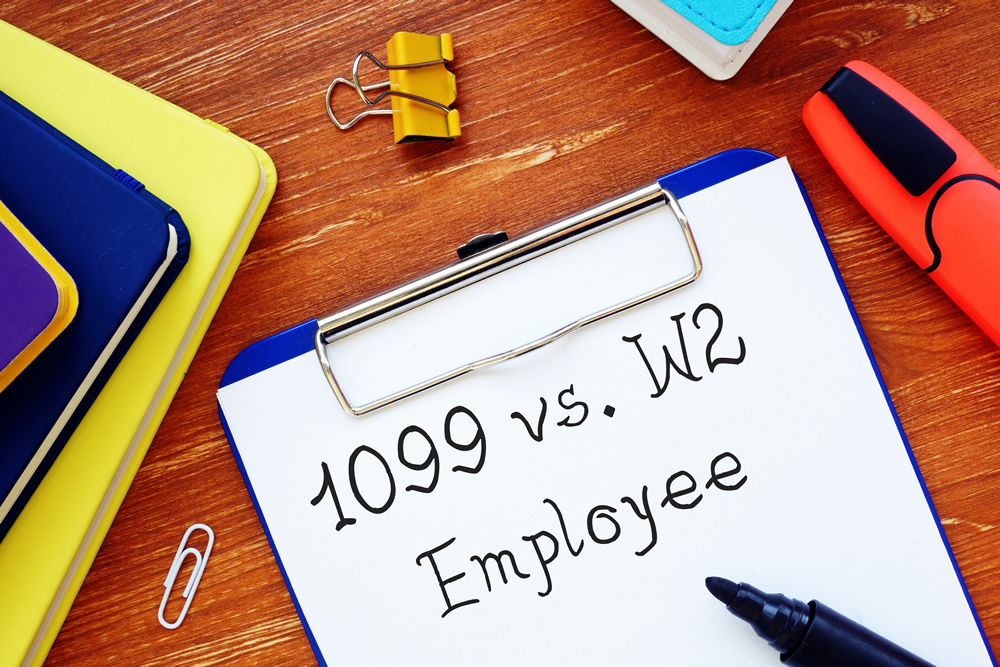The distinction between an employee and an independent contractor is a crucial consideration for employers and employees, as it carries significant implications regarding tax obligations, rights to benefits, and legal accountability. Understanding these two types of workers can help ensure that everyone involved is adequately protected and compensated. This article will provide an overview of what defines an employee and an independent contractor and how to determine which applies to a particular situation. By understanding the key differences between employees and independent contractors, employers and workers can ensure that everyone involved receives fair treatment and proper compensation for their work.
Determining whether someone is an employee or an independent contractor ultimately depends on various factors, including the length and type of work agreement, the amount of control exercised by the employer over the worker’s activities, and the extent to which the worker is economically dependent on the employer. In general, employees have a greater degree of economic dependence and are subject to their employer’s control than independent contractors, who typically maintain more autonomy in their work.
What is an Employee?
An employee is an individual who works for a company or organization on an ongoing basis and is subject to their employer’s control in terms of their work activities. Employees are typically entitled to rights such as overtime pay, vacation time, health benefits, and other employment protections outlined by labor laws. Most employees are paid either a set salary or hourly wage and may be eligible to receive additional compensation such as bonuses or commissions.
Employees are also typically subject to their employer’s company policies, procedures, and code of conduct. As employees depend more on their employers than independent contractors, businesses should take extra care to ensure their employees’ rights and privileges are respected.
What is an Independent Contractor?
When determining whether an individual is an independent contractor or an employee, businesses should consider the degree of control they have over the worker. For example, if a company has the right to dictate when, where, and how workers perform their work tasks, then this is typically indicative of an employer-employee relationship. Additionally, employers should look at the duration of the worker’s engagement, compensation terms, and benefits provided. Suppose a worker is only engaged for a short period, paid on a per hour or per-project basis, and not offered any additional help or protections typically associated with an employment relationship. In that case, they are likely considered an independent contractor by law. Understanding the differences between an independent contractor and an employee is essential to ensure that everyone involved is adequately protected and compensated.
How to Determine Whether a Worker is an Employee or Independent Contractor
Examples of factors to consider when determining whether a worker should be classified as an independent contractor or an employee include the following:
• Duration: The length of time the business engages the individual. An employee typically works for more extended periods than a contractor and may have more job security.
• Control: The degree of control that the business has over the individual, such as how and when they complete tasks. Employers typically have more control over employees than independent contractors.
• Payment: The payment arrangement used, such as salary or hourly wage versus a per-project basis. Employees are typically paid on an ongoing basis, while contractors are only paid for the tasks they complete.
• Benefits: Whether the individual is entitled to benefits such as health insurance, vacation time, or other protections typically associated with employment. Employees are typically offered a range of benefits, while contractors may not be eligible for additional compensation.
• Autonomy: The degree of autonomy the individual has over their work. Employees typically have less independence than contractors and are subject to company policies, procedures, and codes of conduct.
What Happens if a Worker is Misclassified?
If a worker is misclassified as an independent contractor when they should be an employee, this can result in the employer being liable for unpaid wages and taxes. Additionally, the worker may not be provided with certain legal protections typically afforded to employees by law. This includes the right to receive overtime pay, workers’ compensation benefits, unemployment insurance, and other benefits. If an employer is found to have misclassified a worker as an independent contractor, they may be subject to penalties or fines. Therefore, it is essential for businesses to correctly classify their workers and ensure they are provided the appropriate protections.
In conclusion, the main difference between an employee and an independent contractor is that employees are typically under the control of a business, have specific job security, and are provided benefits such as health insurance and other legal protections. By contrast, independent contractors are self-employed individuals who work on an hourly or per-project basis with no job security or additional benefits. When determining the classification of a worker, businesses should consider factors such as duration, control, payment type, and autonomy. Misclassifying a worker can result in costly penalties for employers and the loss of legal protections for workers. Call Maslow Media Group to learn more about our Employer of Record Services, which includes employee classification and compliance protection.



